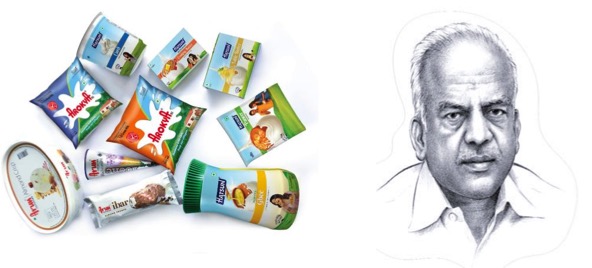Hatsun Agro Product Ltd (HAP), a leading dairy company, reported a 25 per cent increase in net profit at ₹82 crore for the second quarter ended September 30, against ₹66 crore in the same period last year. Revenue increased 23 per cent to ₹1,635 crore (₹1,327 crore), said a company press release.
RG Chandramogan, Chairman, HAP, said, “We are happy to report a decent growth in revenues albeit little shorter than our expectations due to unprecedented monsoon, exceeding more than 10 per cent from the normal in the last few months in the entire South India and Maharashtra. These markets account for 95 per cent of our business.”
Also read : Hatsun stellar performance in Qtr-I: To raise ₹700 cr for expansion
“HAP is investing about ₹450 crore in its business across new manufacturing facilities to expand capacities in ice cream, milk, curd, milk products and cattle feed and also in distribution, sales and marketing before the end of FY22. We will have enough capacities in all our divisions for FY23”.
Solar energy a big saver
The company has made a fresh agreement with Swelect Renewable Energy Private Limited for purchase of solar power under captive user model. The solar project, which is expected to be commissioned by February, is estimated to provide HAP around 1.45 crore units of electricity annually, resulting in cost savings of ₹3 crore. HAP has already started consuming solar power from the recently commissioned solar power plant by Swelect Sun Energy Pvt. Ltd, the release said.
Also read : Hatsun starts a 101 Crores automated dairy plant at Tripur
Total consumption of solar power by HAP from the above two projects alone will be around 3.70 crore units per annum and the total cost saving will be around ₹8.50 crore per annum.
The company said it has forayed into Madhya Pradesh and West Bengal, the release said.
Source Hindu Business Line Oct 18th 2021

